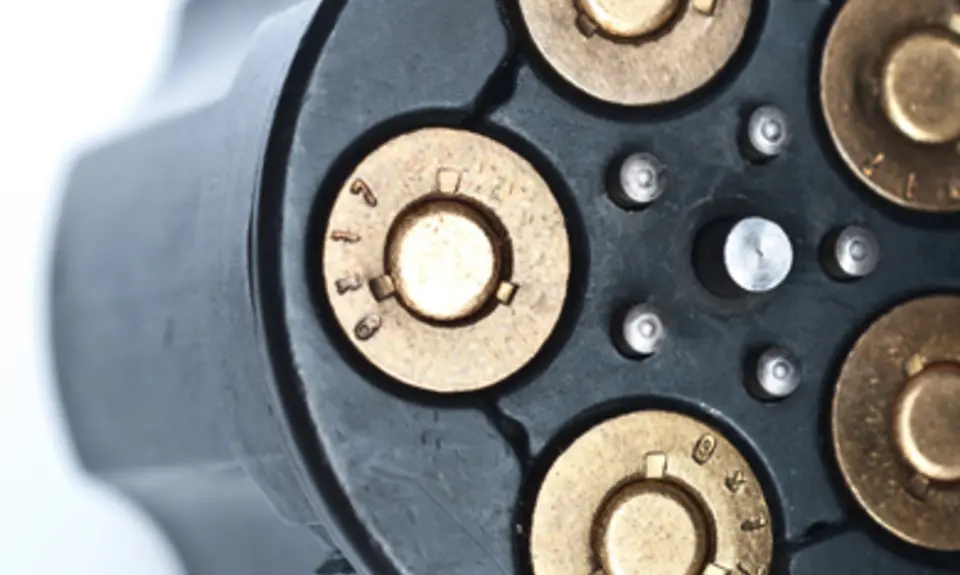This post was original published at The Huffington Post.
On the evening of the announcement that a grand jury decided Darren Wilson, the Missouri police officer who killed unarmed teenager Michael Brown, would not face charges, two storms were capturing the attention of the American people. One was the strong winds that created havoc from the South to the North, and the second was the manifestation of pain through protest over the grand jury's decision.
Last week, Missouri Governor Jay Nixon declared a state of emergency in Ferguson. States of emergency are generally declared in response to natural disasters or civil upheaval. Last week the Ferguson activist group Hands Up United tweeted, in response to Gov. Nixon's announcement, "Our country is in a state of emergency. And not becuz of protestors."
As other advocates have pointed out, we were already in a state of emergency.
Since that fateful day in August when Brown was killed, we have heard analysis from commentators on television, radio, and social media, in barber and beauty shops, and on street corners, about what will happen in Ferguson after the immediate call for criminal justice. We saw a military-style police crackdown on peaceful demonstrators, another sterile review of our broken policing system, and new and veteran activists protesting, organizing, registering people to vote, and bearing witness to a grieving community's call yet again for change in cities across America where silence is not an option in the wake of the death of another unarmed African American male.
A "state of emergency," we are reminded, was declared when Katrina hit the vulnerable walls of New Orleans and flooded neighborhoods. But we were also in a "state of emergency" after the verdict was rendered in the shooting death of Jordan Davis. A "state of emergency" was evident in the November 4 midterm elections when I saw "democracy only for some" in the ten states where I traveled. Our broken immigration system created a "state of emergency" for families that have been separated, threatened with deportation, treated as collateral damage in political debates.
USA Today recently reported that on average there were 96 cases of a white police officer killing a black person each year between 2006 and 2012, based on justifiable homicides reported to the FBI by local police. Mother Jones notes that according to the Department of Justice's 2008 Police Public Contact Survey, "[o]f those who felt that police had used or threatened them with force that year, about 74 percent felt those actions were excessive. In another DOJ survey of police behavior during traffic and street stops in 2011, blacks and Hispanics were less likely than whites to believe that the reason for the stop was legitimate."
That is a state of emergency.
The 1,700 faith leaders in the alliance of progressive African American ministers I lead, frequently primary sources of support in tragedies like this, are too often ministering to mothers and fathers who find themselves suddenly without a child who was alive and well when the day began. These leaders have been fervently preaching, teaching, counseling, meeting with chiefs of police and other city officials, communities and families about the dual system of justice that is still prevalent in the 21st century. While some live in or near Ferguson and others traveled to Ferguson to show support, more just had to walk out their doors, down their streets, to their corners to see the results of delayed justice.
We were already in a state of emergency because of the gun violence in communities across the country. But today, when African American youth are so often shot and killed, such as the 12-year-old in Cleveland, Ohio this past weekend, by those who are charged to protect our communities, the climate that attempts to justify the daily reality of racial profiling and African Americans being nearly "four times as likely to experience the use of force" in police encounters, can no longer be tolerated. Yes, we stay in a state of emergency when African Americans receive longer sentences than Caucasians for the same crimes and when the troubling results of new polling show the racial divide on the shooting death of Michael Brown is as wide as the Mississippi River is long.
The decision announced on Monday evening is certainly not the final chapter, but sadly is another chapter in the experience of living non-white in America. Michael Brown Sr. says he wants his son's death to spark "incredible change, positive change," no matter the grand jury's decision. Continuing dialogue and movement on police violence and the relationship between law enforcement and the African American community must happen daily in living rooms, classrooms, places of worship, and work places around the country, for as feminist scholar bell hooks wrote, "[S]ilences in the face of racist assault are acts of complicity." She is right. Today all Americans are being called to speak out against the ongoing violation of the most fundamental right there is - the recognition of being a part of "We the People."
Dr. King said in 1963, "The ultimate measure of a man is not where he stands in moments of comfort and convenience, but where he stands at times of challenge and controversy." We are in a state of emergency, a time of challenge and controversy, but not because of the protestors. That state of emergency will continue until we stand, become uncomfortable, and demand a justice system that addresses the manifestation of pain in protest, the further chipping away of respect, and the real state of emergency our country faces.
